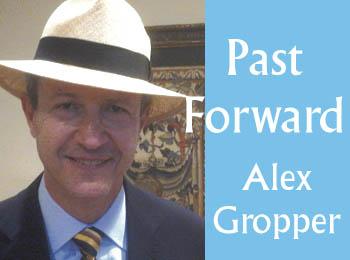The Canadian Jewish News has announced that the paper will no longer be printed after June 20. It would be a sad day if this were to happen. This newspaper has been both a beacon and a pillar of our community. It is this sense of community that has helped to sustain and nurture a sense of identity for most of our existence over the past few thousand years.
Recently, we celebrated the coming together of our people at the base of Mount Sinai more than 3,000 years ago to receive the law from Moses. It was the culmination of our escape from bondage in Egypt and the beginning of our coming together as a nation.
Although we trace our ancestry back to Abraham, historically and archeologically it has been an elusive quest to verify. For much of the 20th century, the eminent American biblical scholar William Foxwell Albright spent most of his illustrious career using archeology to try to verify the events of biblical history. Albright’s students and disciples went on to hold most of the university positions in biblical studies throughout North America, but in Europe they were more critical and skeptical. The last half century has seen the pendulum swing toward the European view.
However, in the new State of Israel, archeology as a means of verifying the past became a national pastime. There it was Albright and his followers, such as the great Yigael Yadin, dominated the study of archeology. Archeology helped give the new state legitimacy and showed that it was but the latest chapter of Jewish habitation in the Promised Land. Yadin’s excavations at places such as Hazor and Masada revealed that ancient Israel had been cast in a heroic mould, and that the Diaspora, with its image of the stereotypical obsequious Jew, was an aberration in a long and illustrious history.
But in the end it is a sense of community that has bound us together in the past and that will hold us together in the present and future. That sense of community has been fostered by both our educational and religious institutions. It is sustained by The CJN, which has served as a communal town hall in print form
It has been our institutions that have bound our community together. These institutions both fostered and made use of our widespread literacy, which was made possible by the invention of the alphabet. The great Harvard scholar and Albright disciple, Frank Moore Cross Jr., once told me that the alphabet democratized knowledge by making literacy open to the masses.
Cross also said that it was no accident that the invention of the alphabet occurred at around the same time as we received the Torah at Sinai. It would ultimately make us “the People of the Book.” The CJN stands firmly in this tradition of communal literacy. It fosters our sense of identity and community. It would be a disaster for us to lose it.
